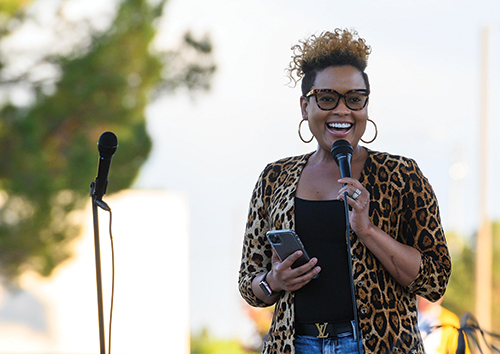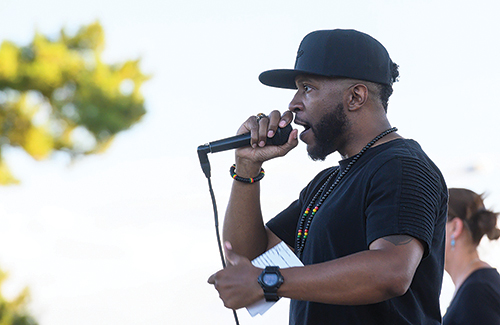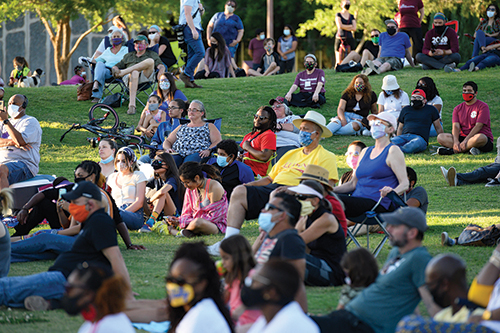NMSU Black Programs marked a milestone in 2020, celebrating five decades of uniting students of African-American, Caribbean and African descent by increasing the awareness and appreciation of Black history through educational, cultural, social and academic programs.
The anniversary, however, comes as the nation is once again reckoning with race-related turmoil, exacerbated by incidents of police brutality against Black Americans and a pandemic that has disproportionally affected communities of color.
But even amid recent challenges, NMSU leaders driving the movement to eradicate racism and discrimination throughout the university, and create a diverse, welcoming educational environment for all students of color, say they’ve witnessed reassuring signs of progress.
“I am optimistically encouraged by what I have seen from young people,” says Kimberly York, interim director of Black Programs, a role she started July 1, 2020.
“Is everybody on the same page with what we believe and what we know to be true regarding racism? Absolutely not,” York adds. “But right now, the focus and the efforts are on those who want to help us move forward.”
Patrick Turner, director of NMSU’s First-Year Initiatives and York’s predecessor as the head of Black Programs, says the events of the past year – mass rallies in support of Black men and women beaten or killed by police brutality – have led to “a tipping point.”
“I’m hoping this energy maintains as we move forward and keep putting pressure on our politicians and our colleges,” Turner says, “because if they’re going to represent us, they need to represent all of us.”
At the height of the protests demanding justice for George Floyd, Breonna Taylor and other victims of police violence, York and Turner held the first on-campus Juneteenth celebration, a collaboration with the Black Student Association, the NMSU Police Department, ASNMSU, the dean of students, and other campus and community partners. The celebration drew a diverse crowd of several hundred participants.
York describes seeing that inaugural event come together amid national calls for racial justice as a “perfect storm.” Juneteenth is an annual commemoration of when enslaved people in Texas received news of their liberation in 1865 – two years after the Emancipation Proclamation.
“It was profound because it wasn’t just about Black people – it was about humans coming together to support us,” York says of the celebration.
“The whole idea was to bring people from different cultures, different backgrounds, different sexual orientations, different religions – all those things together – and say, ‘We can celebrate together,’” says Turner, who also founded the Men of Color Initiative. “I am very optimistic about moving forward.”
The Juneteenth event also served as a starting point for deep, sometimes uncomfortable conversations about systemic racism and the push to attain greater diversity and inclusion, specifically in the recruitment of students of color. York and Turner, for example, both participated in one online forum dedicated to looking at the movement beyond the protests.
Turner says there are many steps people can take to help push the movement forward, noting that NMSU is doing its part by hiring a new vice president-level diversity leader.
“I always say take your talents – whatever that is – to fight for everyone’s rights,” he says. “Right now, I think the most pressing issue is voting. Voting is important all the time, but right now it is very critical and it’s very serious.”
At this moment, York sees NMSU Black Programs as a conduit for progressive conversations that lead to actionable items, as well as a catalyst for change.
“Our young people, led by the Black Student Association, are energized and invigorated, and leading us in directions that typically we would not explore,” she says.




Dove Hall, Room 212
305 N. Horseshoe Drive
Las Cruces, NM 88003